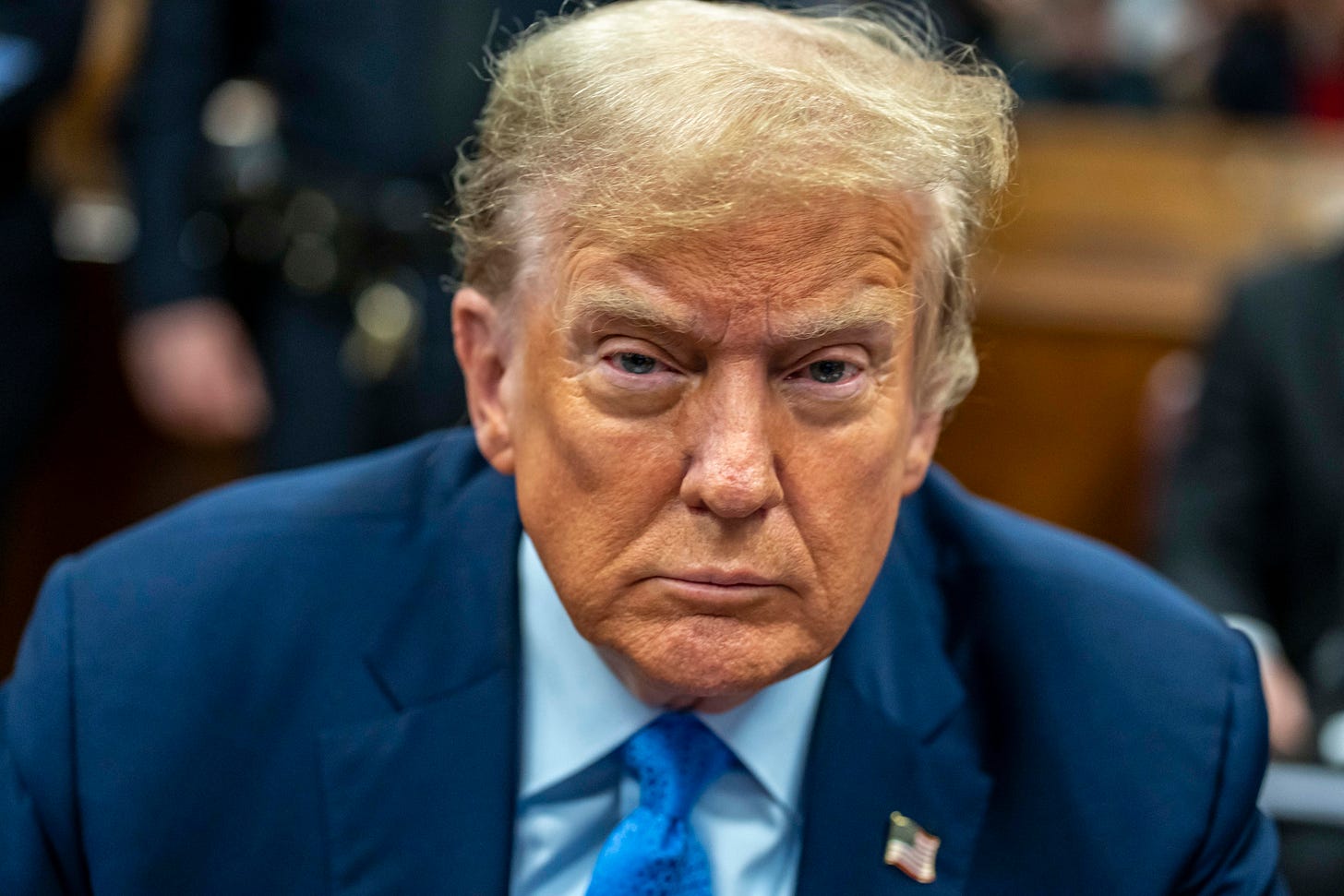The Trump Exception
With a little help from his friends on the Supreme Court, the former and possibly future president could end up pushing the rule of law beyond the breaking point

Last week, while a good portion of the nation’s attention was fixed on the actions of a small number of very noisy undergraduates sprinkled across a few of the country’s thousands of colleges and universities, the Supreme Court held oral arguments in a case whose import goes far beyond any fleeting protest.
A few months ago, when Donald Trump’s team of lawyers first began making sweeping claims for his immunity from prosecution for seeking to remain in office despite losing a free and fair election, I rolled my eyes, assuming those claims would be dismissed out of hand. How could a president plotting and seeking to execute a self-coup be immune from prosecution for those acts? It sounded absurd.
Now it seems that several Supreme Court justices view the matter quite differently than I assumed they would and could well grant the former president and presumptive Republican nominee for president at least some of the immunity he seeks.
I shouldn’t have been surprised. That’s because I’ve studied the history of political philosophy. It’s that history that has inclined me toward skepticism about efforts to neutralize the threats Trump poses to American self-government using legal means. My line over the past few years has been: Trump is a political problem who must be defeated in the political arena. The attempt to use law against him will fail and/or backfire, rendering him more, not less, politically potent.
It turns out that the immunity case could well vindicate my concerns more sweepingly and ominously than I realized as recently as a week ago.
The Rule of Law and Its Limits
Keep reading with a 7-day free trial
Subscribe to Notes from the Middleground to keep reading this post and get 7 days of free access to the full post archives.


